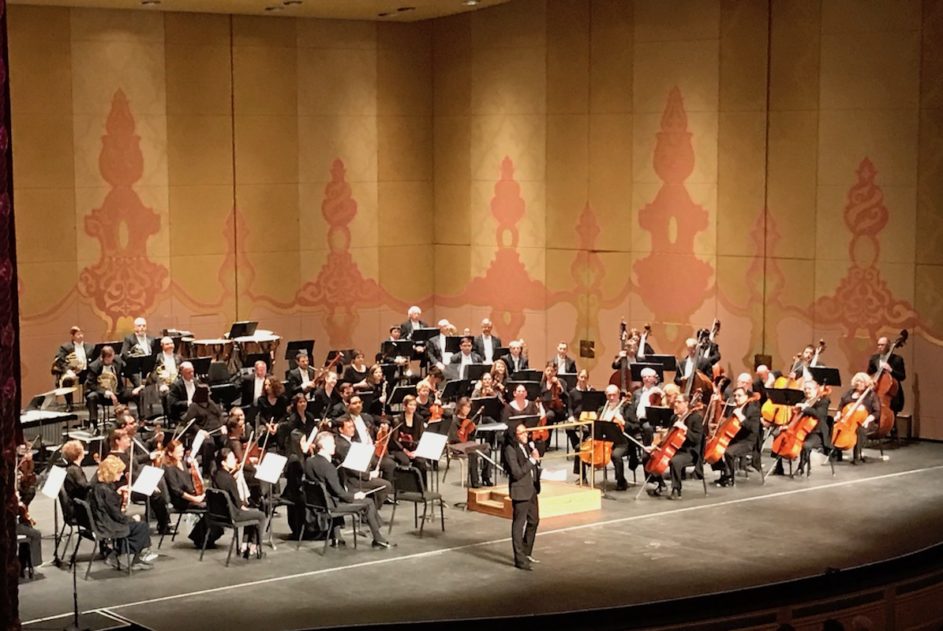If it hadn’t been for pianist Fei-Fei Dong’s exuberant encore of contemporary Russian pianist Arcadi Volodos’ rambunctious arrangement of Mozart’s “Turkish Rhondo,” last night’s Knoxville Symphony Masterworks Concert at the Tennessee Theatre would have been a much more sedate, even restrained concert, led by guest conductor Edwin Outwater.
The “Rhondo” is actually the third movement of Mozart’s “Piano Sonata # 11 in A Major,” K. 331. Marked “Alla Turca,” it is often played as a stand-alone piece. But most often without the flash of Fei-Fei’s interpretation of Volodos’ version.
Fei-Fei came to play Mozart’s “Piano Concerto No. 2 in D Minor,” K.466. Her performance was consistently clean, crisp and precise. My guess is the cadenze she played in the first movement was the one written by Beethoven. As with other of Mozart’s concertos, for his own performances, he improvised the cadenze on the spot, never writing them down.
In general, Mozart’s concertos have a sense of politeness for respect for the social norms of the day and the mostly aristocratic audiences who heard the music. In the 20th, he builds in areas of darkness and drama that provides hints of the romantic music later composers developed.
Fei-Fei didn’t shy away from these details, but embraced them with conviction.
Outwater began the concert with contemporary American composer Missy Mazzoli’s misnamed “Violent, Violent Sea,” written in 2011. Despite its title, the music is fundamentally a slow-moving piece, with moments of glistening interventions by the vibraphone and marimba. At least until the final measure, when the music suddenly unwinds and stops.
In Robert Schumann’s “Symphony No. 2 in C Major,” Op. 61, written in 1846, Outwater’s conservative approach to conducting produced another clean, careful performance.
In the third movement, marked “Adagio expressive,” there was a gorgeous oboe solo played by principal oboe Claire Chenette. It was later picked up by principal clarinet Gary Sperl. Then exchanged back and forth between them, with the addition of the flutes.
There was also solid playing in the bassoons, trumpets, horns and trombones.
Pinning down just how effective a conductor Outwater is by watching his work from behind him, changed with various moments in the program. He has a conservative demeanor with careful, restrained hand gestures and a complete absence of theatrics.
There was no doubt about the orchestral textures and general clean execution that recalled the disciplined playing under former conductor Lucas Richman.
There are likely several opinions, maybe even conflicting ones, among the musicians, whether this performance was due to the music programmed or the control of Outwater’s conducting. At times, he looked boring. At other moments, he seemed to produce lovely, nuanced phrasing.
Whichever the case, this concert, as a whole, was a lovely evening of music.
The concert will be repeated Friday evening at 7:30. Tickets may be purchased by calling the Knoxville Symphony ticket office at 865-291-3310.

